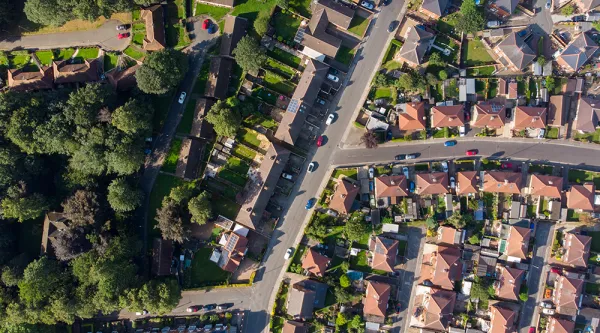How can you use geospatial insights to improve your department's performance and achieve your policy goals?
In this blog, I explore how geospatial data can help the UK government level up regions, stimulate economic growth, and bridge departmental interoperability.
Geospatial data refers to any information that has a geographic component, such as location, distance, or area. It is crucial for government policies and departmental interoperability. By analysing this data with advanced technologies, you can gain valuable insights into spatial patterns, trends, and relationships. These insights have emerged as a transformative force helping inform decisions, foster collaboration across departments and helping them to be at the forefront of modern governance.
In the UK, geospatial insights are pivotal for advancing the Government’s key agendas such as levelling up, and service as a cornerstone for stimulating robust economic growth.
Advancing the UK’s Levelling Up agenda
The UK Government’s levelling up agenda is a comprehensive plan aimed at reducing regional disparities and driving economic growth across the country. It focuses on improving services and seeks to spread opportunities and prosperity to all parts of the UK.
Geospatial technologies can provide unparalleled accuracy to help the UK government identify and analyse regional disparities. By mapping socio-economic indicators such as employment rates, income levels and access to services, policymakers can pinpoint areas that require targeted interventions more precisely – promoting balanced and inclusive development across the country.
At the heart of the levelling up agenda is effective infrastructure development. Geospatial insights facilitate comprehensive planning by mapping existing infrastructure and highlighting areas lacking essential services. This data-driven approach enables the strategic placement of new projects, such as transportation networks, schools, and healthcare facilities, ensuring that they contribute to regional growth and development.
Stimulating economic growth
Geospatial insights are crucial for stimulating economic growth as they provide valuable data for informed decision-making. They provide businesses with data on market trends, customer behaviour and resource distribution. This information helps businesses to decide where to locate operations, optimise supply chains and target marketing efforts. A thriving business environment, in turn, drives economic growth and job creation.
Effective land use management is crucial for economic development as it ensures that land is used efficiently and sustainably, supporting economic activities while preserving environmental integrity. Geospatial technologies enable the analysis of land use patterns and the identification of areas suitable for commercial, residential, or industrial development. The technology ensures that land is used efficiently and sustainably, supporting economic activities while preserving environmental integrity.
A resilient economy requires robust disaster management systems. Geospatial insights enable the UK government to predict, prepare for, and respond to natural disasters more effectively. By mapping flood zones, earthquake-prone areas, and other hazards, policymakers can implement measures to mitigate risks and ensure economic stability even in the face of natural disasters.
Bridging departmental interoperability
Geospatial technologies can facilitate the creation of unified data platforms, where all data type, such as health, transport, policing, is in one place and is accessible to multiple government departments, ensuring that spatial data collected by one department can be used by others. This can promote coordinated efforts and collaboration across the Government. For example, environmental data can be used by urban planners, health officials, and emergency responders to make informed decisions.
Geospatial data can also provide a common framework for data analysis and decision-making, fostering collaboration between different agencies. For instance, urban planning departments can work with environmental agencies to ensure sustainable development, while health departments can collaborate with emergency services for better disaster preparedness.
Geospatial data can provide the UK government with a range of benefits. Whether that is the ability to allocate resources more effectively across departments or helping identify areas in need of investment using spatial analysis – ensuring funds are directed to projects that will have the greatest impact. This efficient allocation of resources supports the levelling up, zero carbon, and economic growth agendas simultaneously.
Closing insights – how can your department be more efficient at delivering policies?
Geospatial insights are increasingly pivotal in shaping the UK government's policies, facilitating data-driven decision making, and enhancing cross-departmental collaboration. By leveraging these technologies, the UK not only accelerates its levelling up efforts but also strengthens its economic growth trajectory. This transformative potential prompts the question, “Can geospatial data serve as a catalyst for advancing both economic growth and the zero-carbon agenda?” As the nation continues to embrace geospatial data, it exemplifies how modern technologies can foster a more inclusive, sustainable and prosperous future.
Contact me if you want to learn more about how geospatial technologies can help you leverage insights for your department’s success or to discuss any points raised in the blog.






